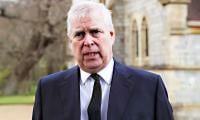‘Big changes await world during Trump 2.0’
Islamabad: The NUST Institute of Policy Studies (NIPS) organised a seminar on ‘The World during Trump 2.0: Implications for Global and Regional Peace, Security, and Stability’ at the university’s main campus here Tuesday.
Moderated by Dr Ashfaque Hasan Khan, DG NIPS, the seminar, featuring three keynote addresses, was attended by statesmen, former senior civil and military officials, veteran ambassadors, academics, think tank experts, scholars, researchers, and students. There was an expert consensus that big changes awaited the world during Trump 2.0. Mr Mushahid Hussain Sayed, veteran statesman and Chairperson Pakistan-China Institute, said that the return of Donald Trump to the White House augured sharp shifts in global and regional dynamics, which could also likely change traditional institutional structures and reshape governance in the United States. He noted that India’s growing isolation across South Asia, despite the American prioritisation of India, would create an unprecedentedly favourable moment that ought to be utilised by Pakistan for the greater regional interest.
Mr Masood Khalid, Pakistan’s former ambassador to China, highlighted that Trump’s cavalier penchant for unilateralism would lead to greater anti-globalisation and geo-economic fragmentation. He stressed that Pakistan must safeguard its vital interests unflinchingly, navigate the increasingly complex global geopolitical environment astutely, continue to deepen relations with China confidently, and promote relations with the US on the basis of the principle of bilateralism and mutual interest.
Ambassador Sohail Mahmood, DG, ISSI and former Foreign Secretary, stated that amidst the privileging of India by the US, the intensification of great-power competition, and rising global trade protectionism, Pakistan should keenly focus on political stability, economic growth, and deft navigation of bloc politics as a solid guarantee against impending geopolitical headwinds.
Ensuing was a detailed discussion on the issues of future course and pace of great-power competition, domestic challenges of great powers, imperatives of comprehensive national development, geopolitical future of South Asia, the future of peace and stability in the Middle East, expansion of BRICS, inclusive and exclusive multilateralism, and other pertinent strategic developments.
-
 Keith Urban, Nicole Kidman's Daughters Choose One Parent To Side With
Keith Urban, Nicole Kidman's Daughters Choose One Parent To Side With -
 Sarah Ferguson's Hidden Trait Exposed As Expert Dismantles Shadow Side To Her Personality
Sarah Ferguson's Hidden Trait Exposed As Expert Dismantles Shadow Side To Her Personality -
 Sarah Ferguson Backed By Powerful Friends Amid Epstein Fallout
Sarah Ferguson Backed By Powerful Friends Amid Epstein Fallout -
 PINK’s Latest Move Sparks Speculations About Replacing Major Celebrity On Show
PINK’s Latest Move Sparks Speculations About Replacing Major Celebrity On Show -
 Planetary Parade 2026: Here's How To See Six Planets Aligning Today
Planetary Parade 2026: Here's How To See Six Planets Aligning Today -
 Christopher Nolan Reveals Why He's A Fan Of 'Fast & Furious' Movies
Christopher Nolan Reveals Why He's A Fan Of 'Fast & Furious' Movies -
 Ben Affleck Unable To Accept A New Lover Post Jennifer Lopez Divorce As He Still Grieves End Of Bennifer 2.0
Ben Affleck Unable To Accept A New Lover Post Jennifer Lopez Divorce As He Still Grieves End Of Bennifer 2.0 -
 Why Is Demi Moore Being Called Ozempic Victim?
Why Is Demi Moore Being Called Ozempic Victim? -
 Kaley Cuoco Makes Honest Comparison Of 'Big Bang Theory' And 'Charmed' Gigs
Kaley Cuoco Makes Honest Comparison Of 'Big Bang Theory' And 'Charmed' Gigs -
 Robert Picardo Shares Surprising Reaction On Returning To The 'Star Trek' Franchise
Robert Picardo Shares Surprising Reaction On Returning To The 'Star Trek' Franchise -
 AI Feud Deepens As Musk Targets OpenAI Over Safety Concerns
AI Feud Deepens As Musk Targets OpenAI Over Safety Concerns -
 'Paranoid' Andrew Fears Assassination: 'Panic Is Spiralling'
'Paranoid' Andrew Fears Assassination: 'Panic Is Spiralling' -
 Israeli Minister Hits Back At Prince Harry
Israeli Minister Hits Back At Prince Harry -
 Thousands Of Google Accounts Could Be Misused By Hackers: Report
Thousands Of Google Accounts Could Be Misused By Hackers: Report -
 Prince Harry Ignores Question About Andrew
Prince Harry Ignores Question About Andrew -
 Ryan Gosling On What Makes 'Star Wars: Starfighter' Different From Other Franchise Films
Ryan Gosling On What Makes 'Star Wars: Starfighter' Different From Other Franchise Films




